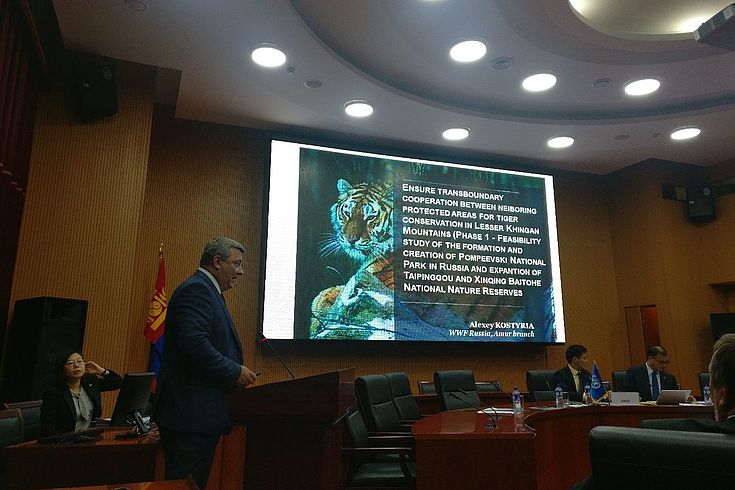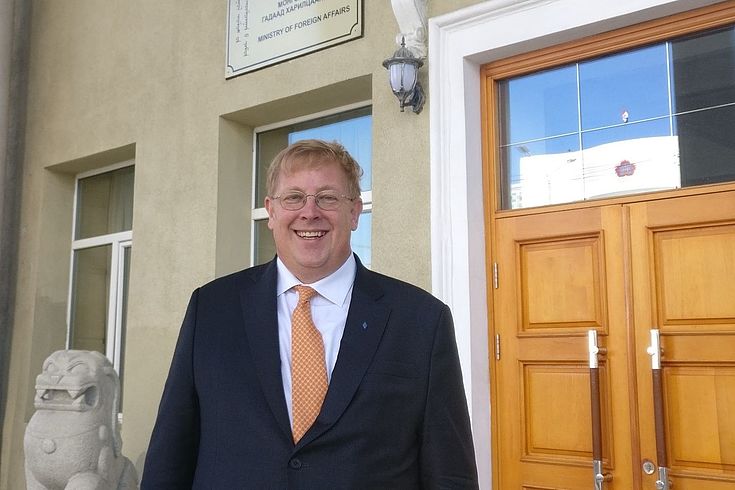Meeting
23rd Senior Officials Meeting of NEASPEC in Ulaanbaatar

The meeting, which took place in the Foreign Ministry of Mongolia, started with opening remarks by the head of the UN-ESCAP Northeast Asia Office, Ambassador Ganbold, as well as remarks by the Minister of Environment of Mongolia, Tserenbat Namsrai, and Tapan Mishra, coordinator of the UN agencies in Mongolia.
Speaking of Northeast Asia, often the lack of institutions and institutionalized cooperation is pointed out. However, in the last two decades a number of valuable initiatives came up to cope with this lack. One of the most important in the field of environment is the North-East Aisa Subregional Programme for Environmental Cooperation (NEASPEC) under the UN-ESCAP Northeast Asia office in Songdo, Incheon, Korea. This initiative brings together every year a number of specialists and officials of the six Northeast Asian countries, i.e. China, Japan, South Korea, North Korea, Mongolia and Russia. Clearly, the cooperation of Mongolia – often left out in integration efforts – and in particular North Korea is very meaningful. HSF cooperates with NEASPEC since 2014, when a joint survey on migratory birds was organized in China and North Korea.
The morning session was devoted to the reports of the heads of the five participating national delegations (all but North Korea). In these, it was clear that multilateralism in NEASPEC was seen as an important achievement. Topical, air pollution this year topped the agenda, but also other important issues, for example transboundary cooperation on nature protection and joint protection of endangered species, in particular large felines (tigers and leopards) in the Mongolian-Chinese-Russian-North Korean border area.

Afterwards, deliberations focused on the programs of NEASPEC on some of the great environmental challenges of Northeast Asia: transboundary air pollution, transboundary nature protection, maritime protected areas, low carbon cities and desertification and land degradation. While all countries were trying to cooperate on these issues some differences became visible, e.g. on the question of the amount of transboundary air pollution vs. homegrown air pollution. But overall, the will to cooperate is pronounced in all countries, which is a blessing for a number of very important projects, e.g. transboundary protection of migratory birds. In the coming years, networking between nature reserves and parks in the Tumen river delta area will be enhanced, with potentially the first cross-border Ramsar site in Northeast Asia. Hanns-Seidel-Foundation will continue to cooperate with NEASPEC on this and other projects, with a few to enhance nature protection on the Korean Peninsula, and, through that, ultimately peace on the Korean Peninsula.
